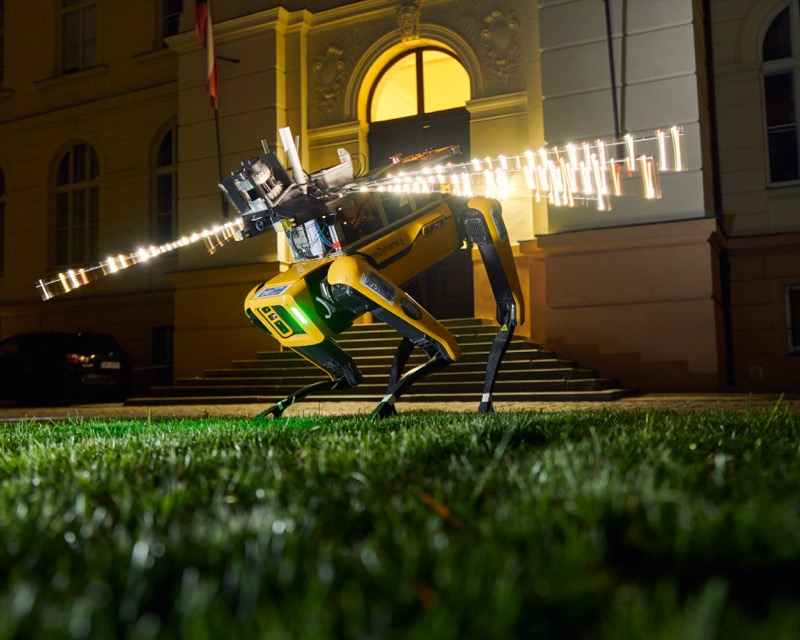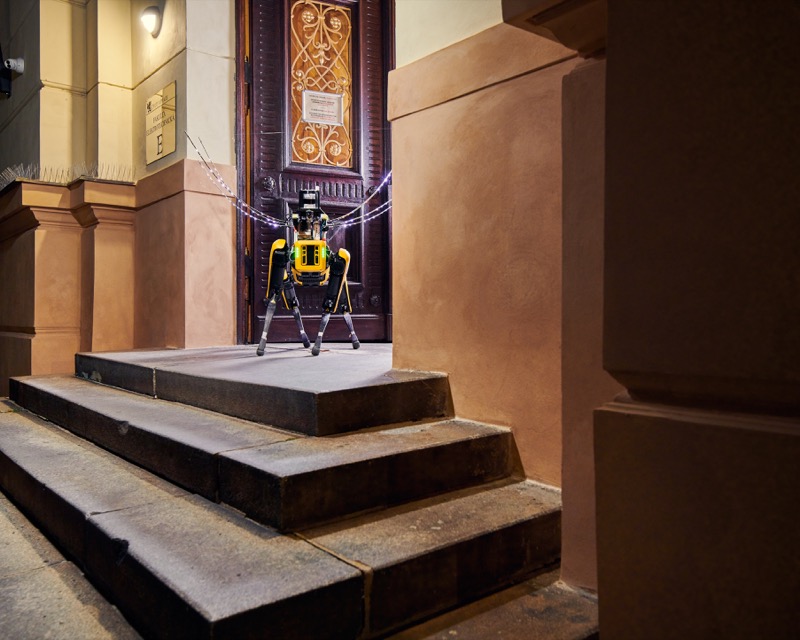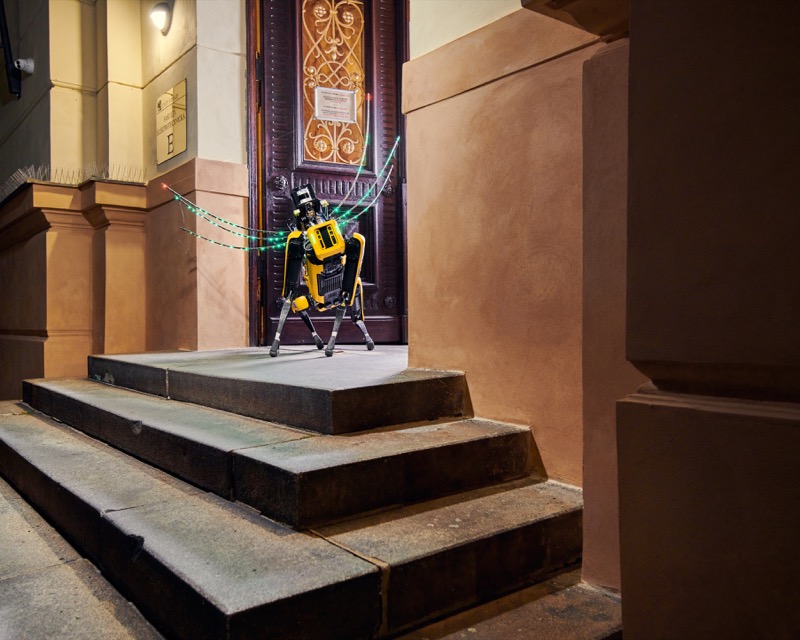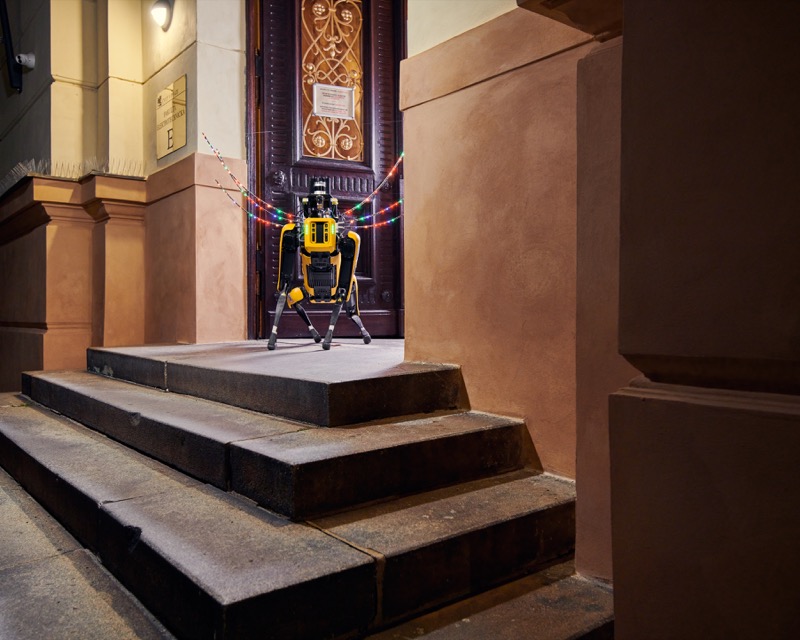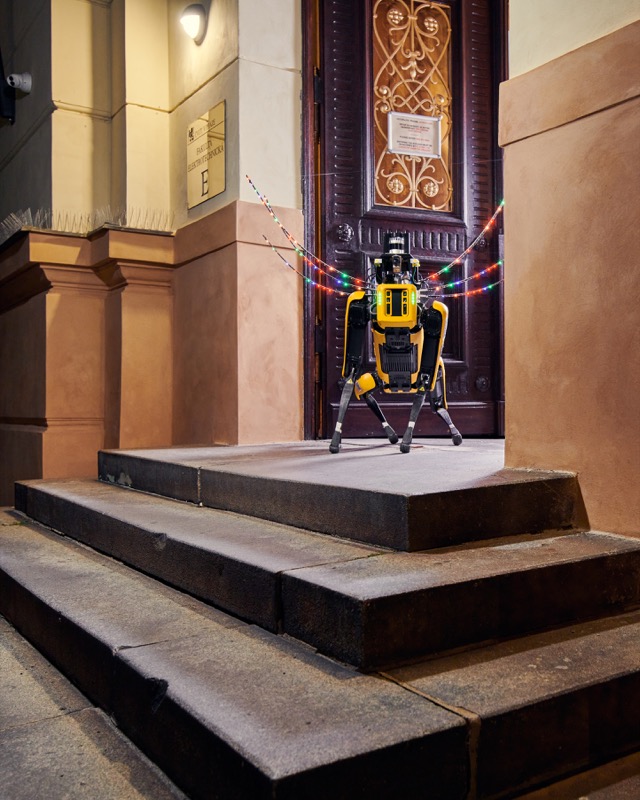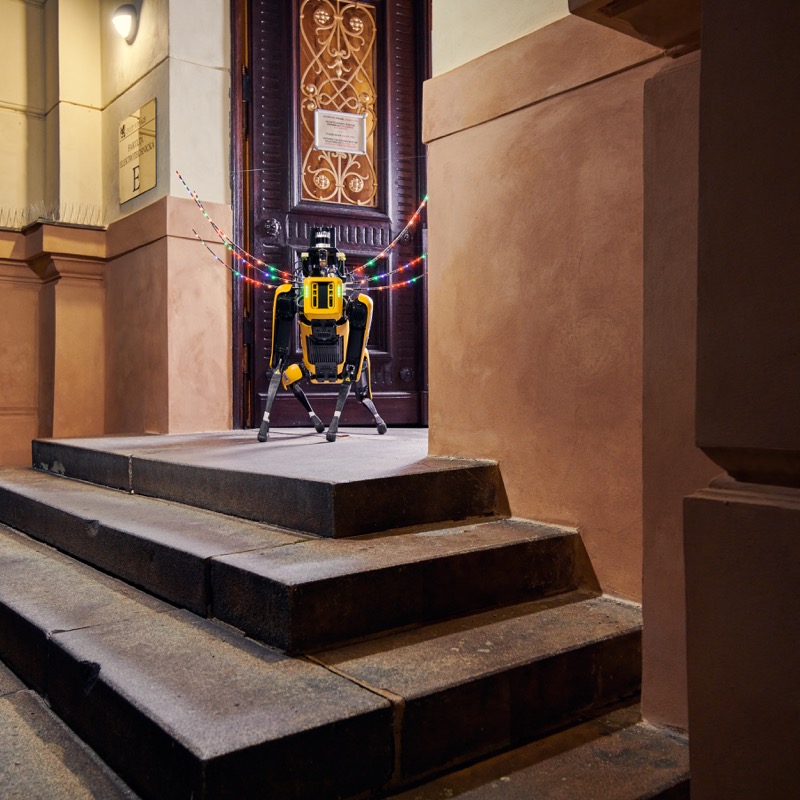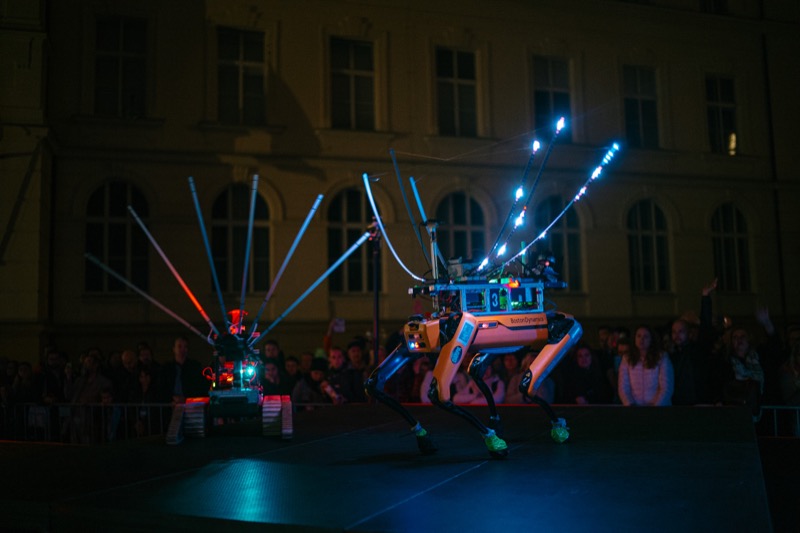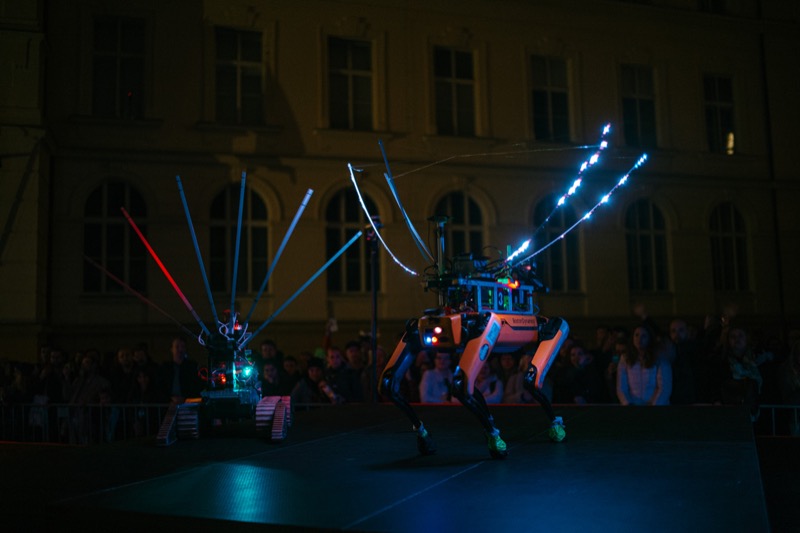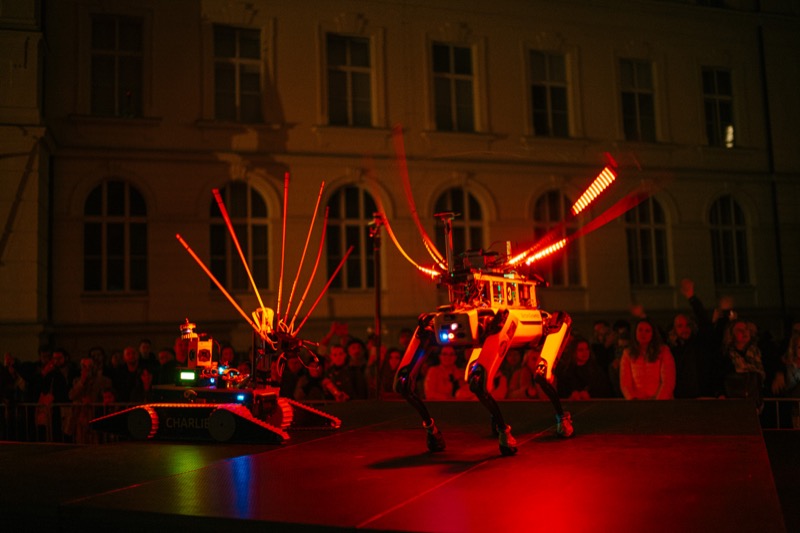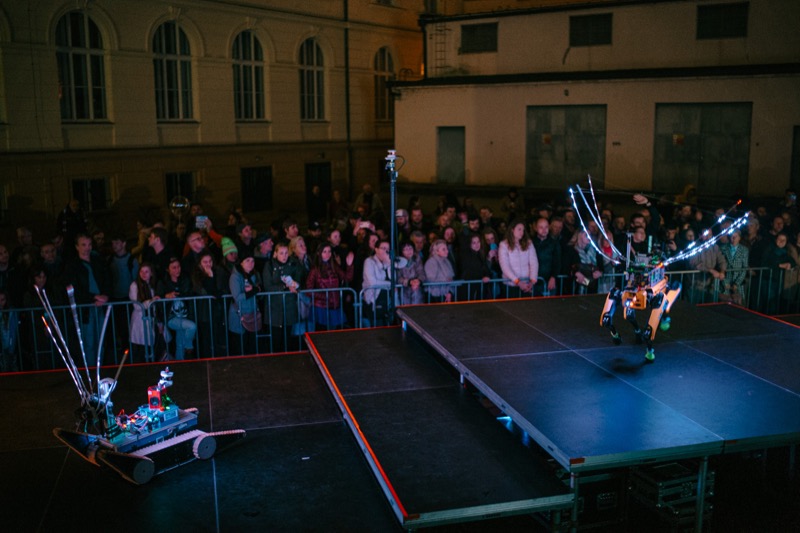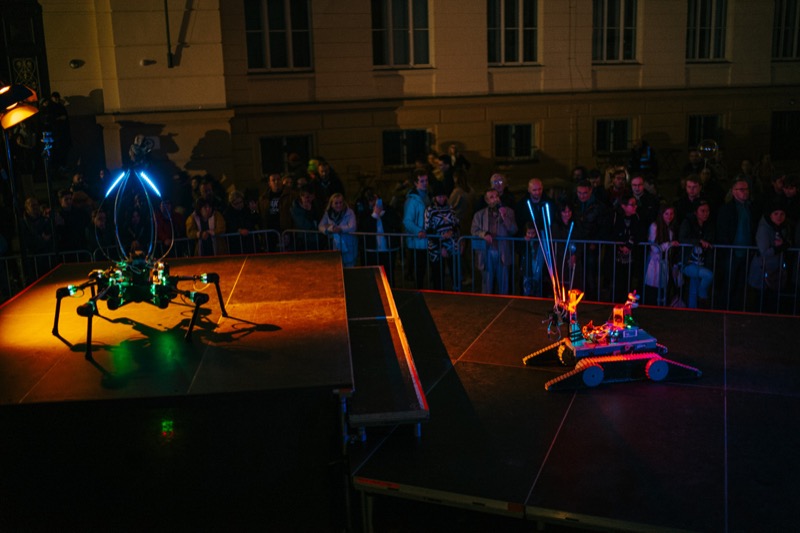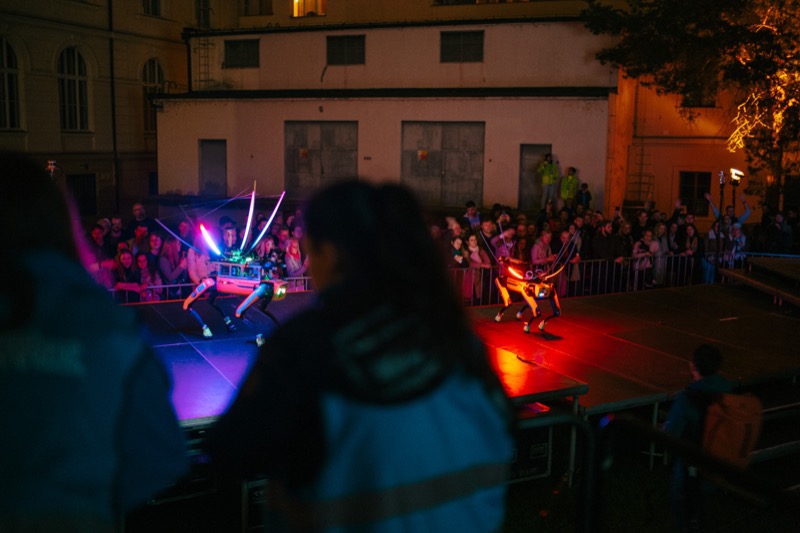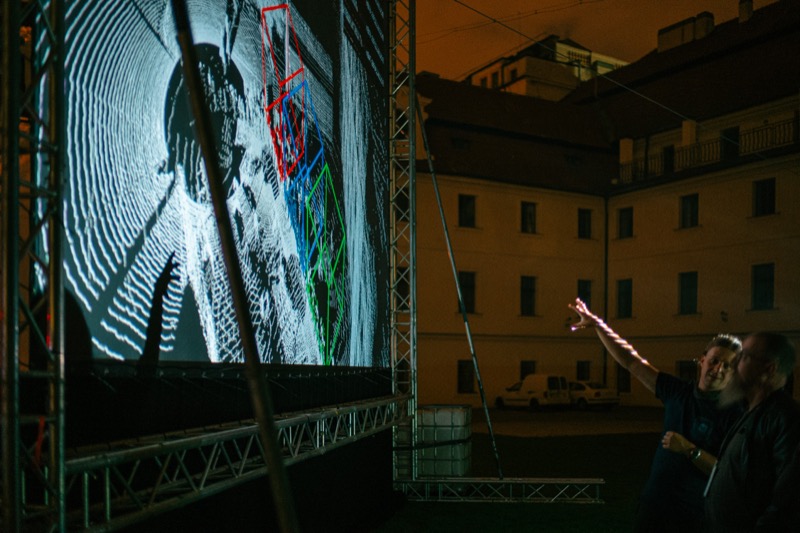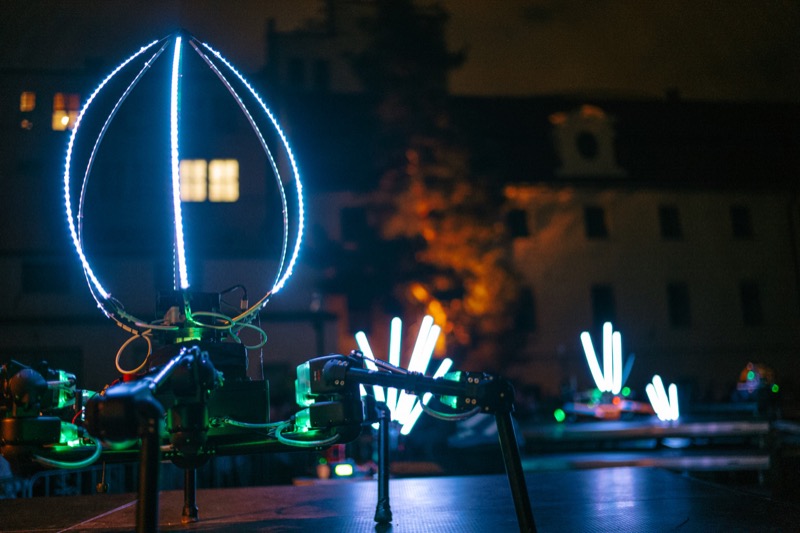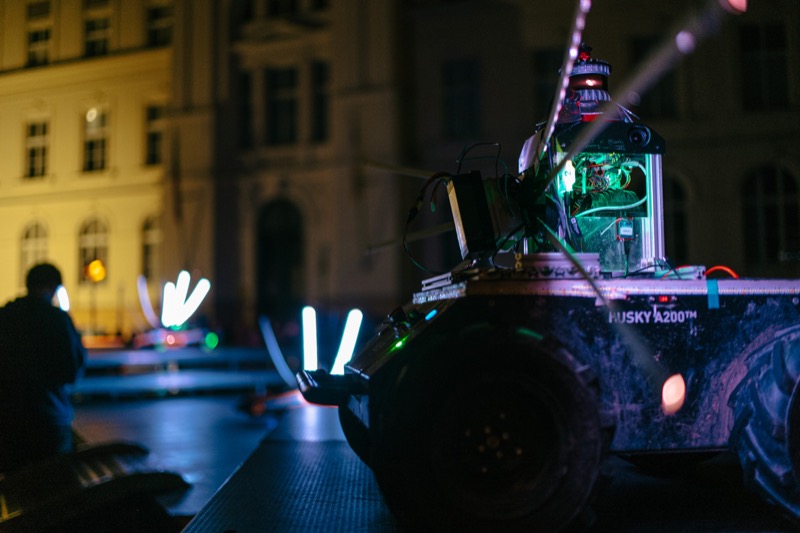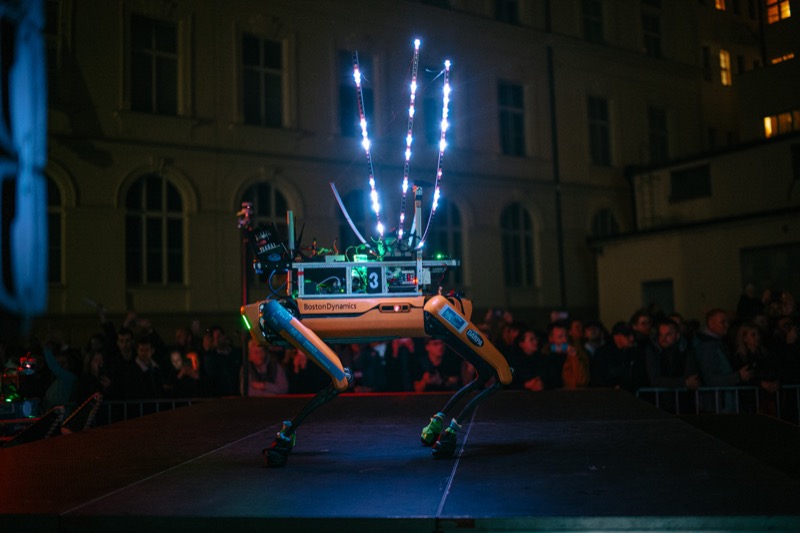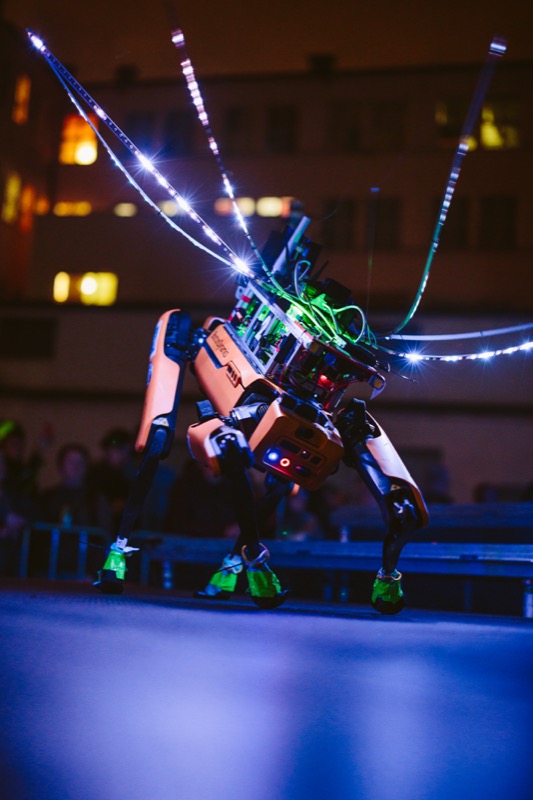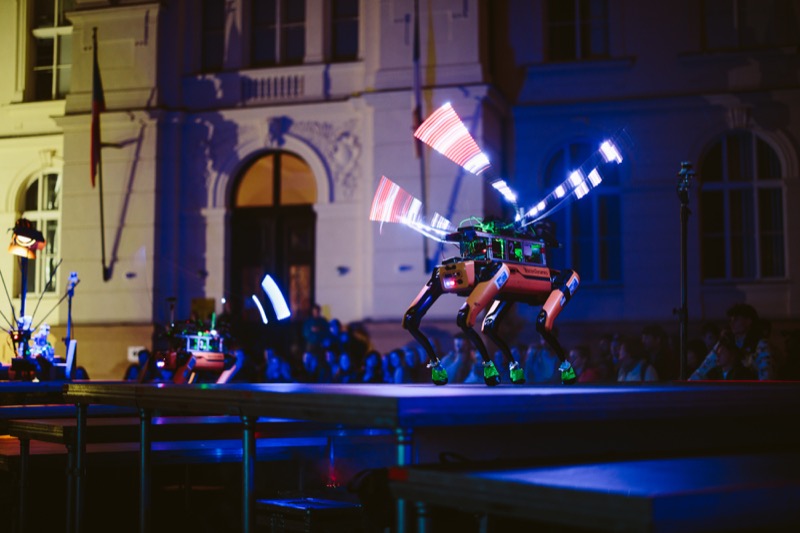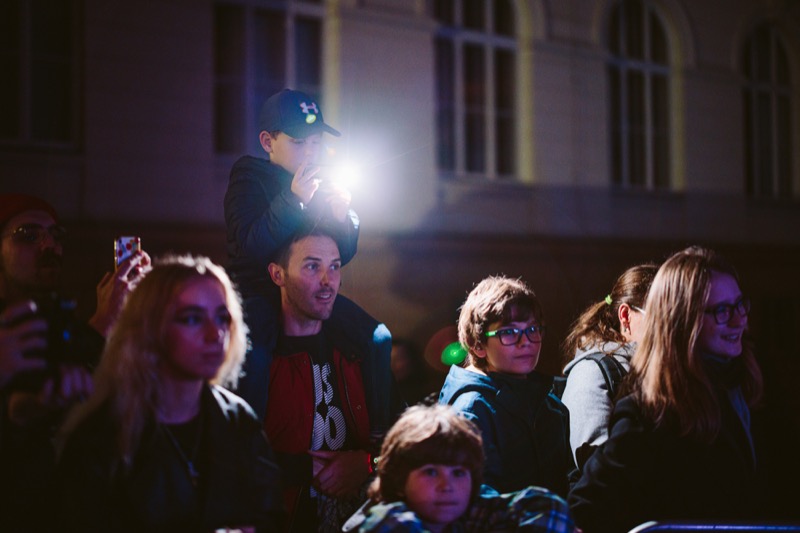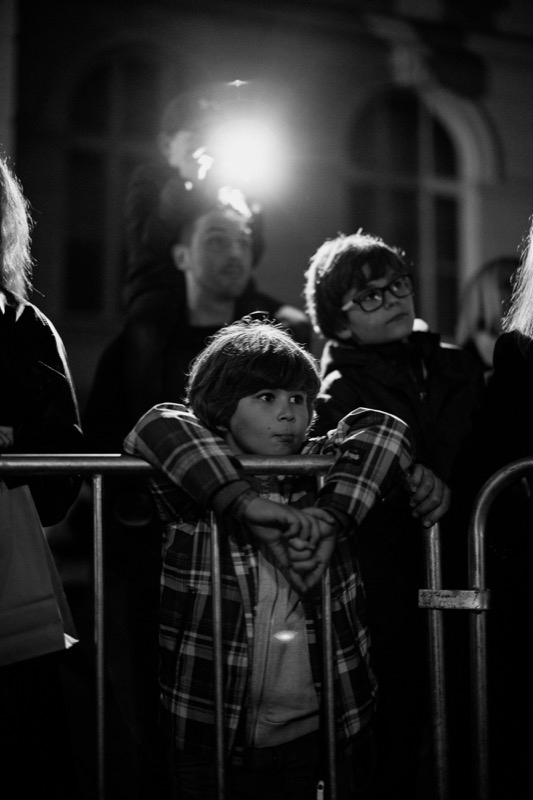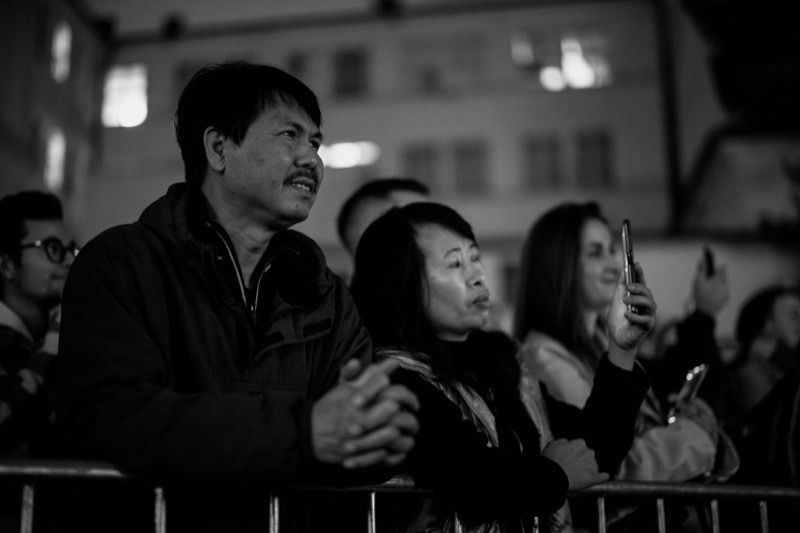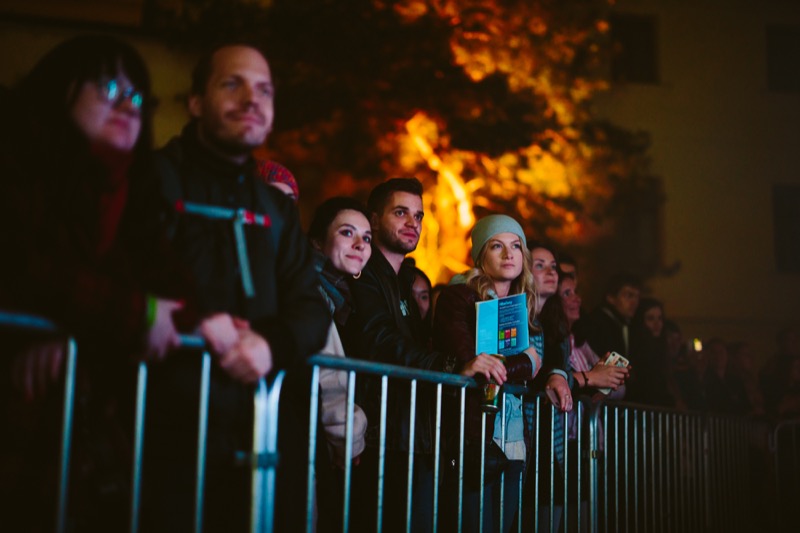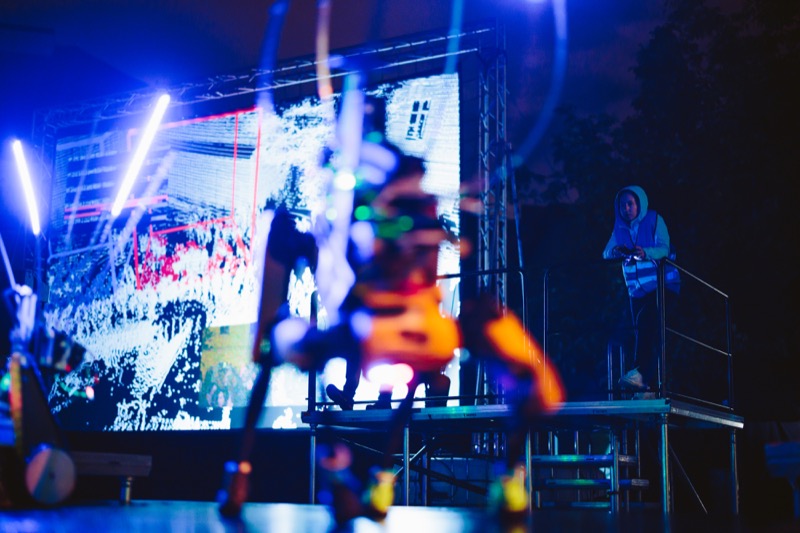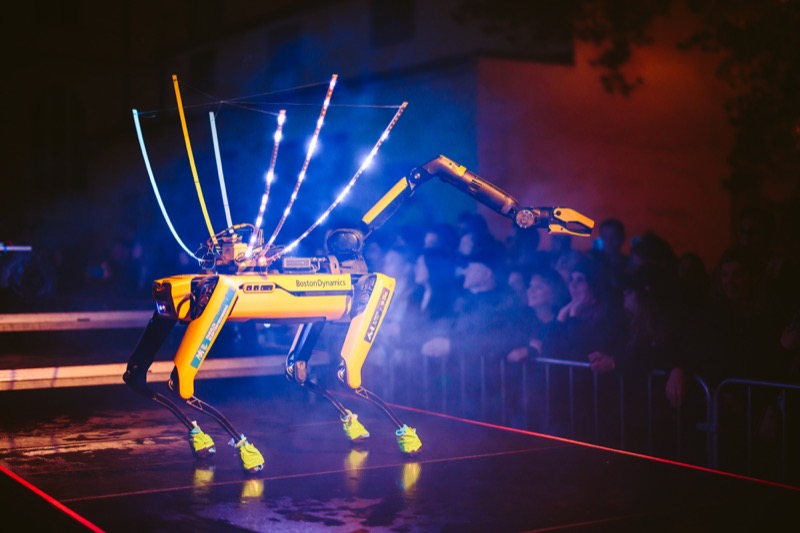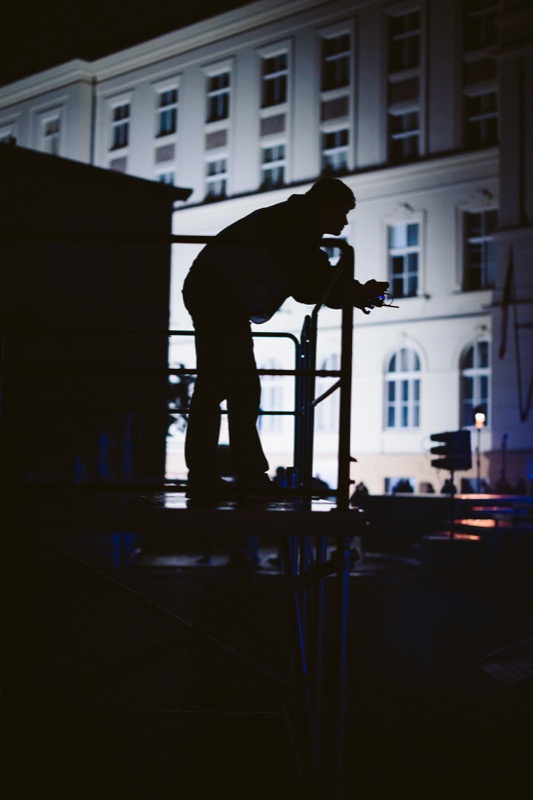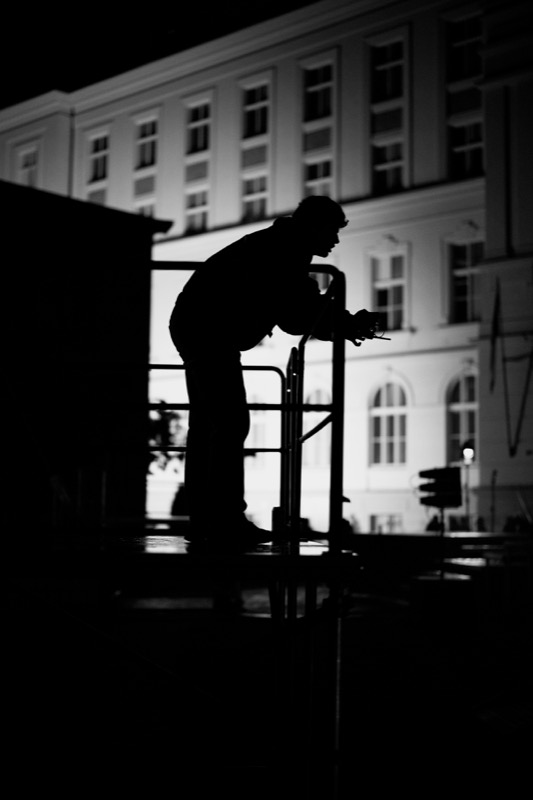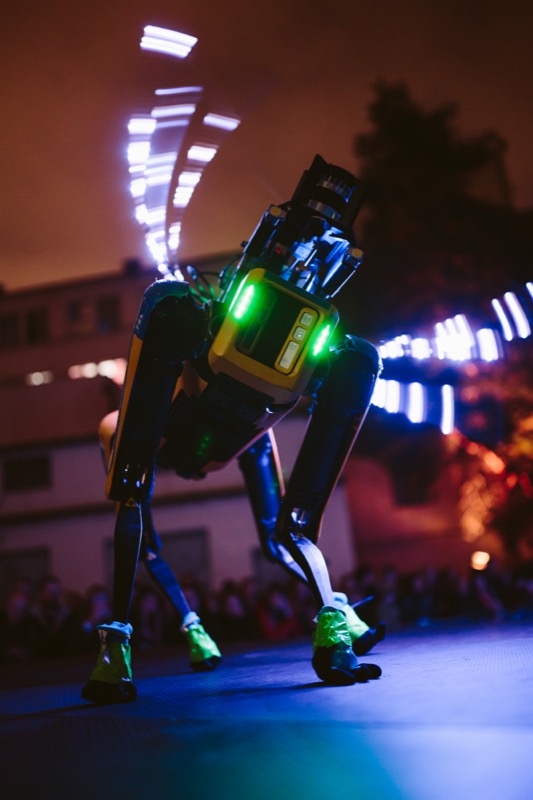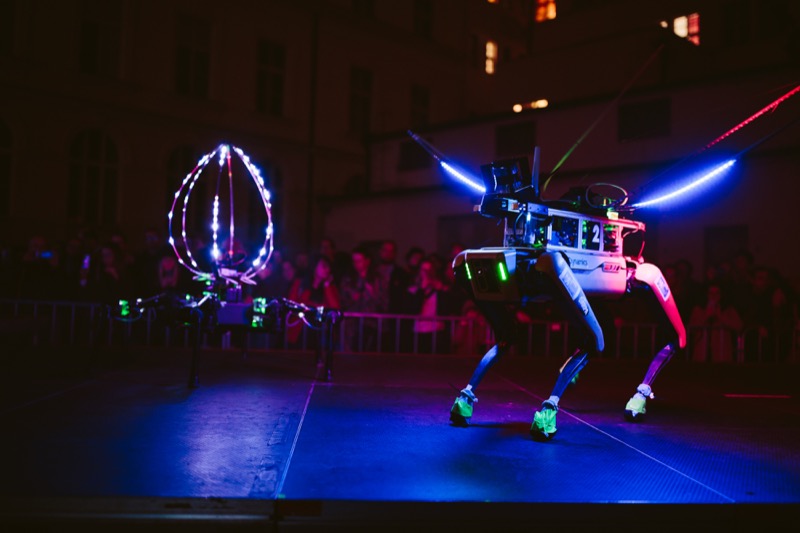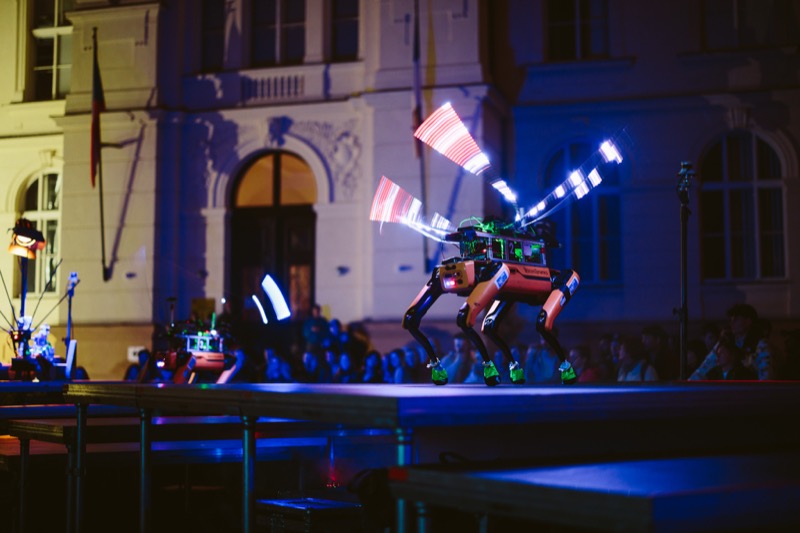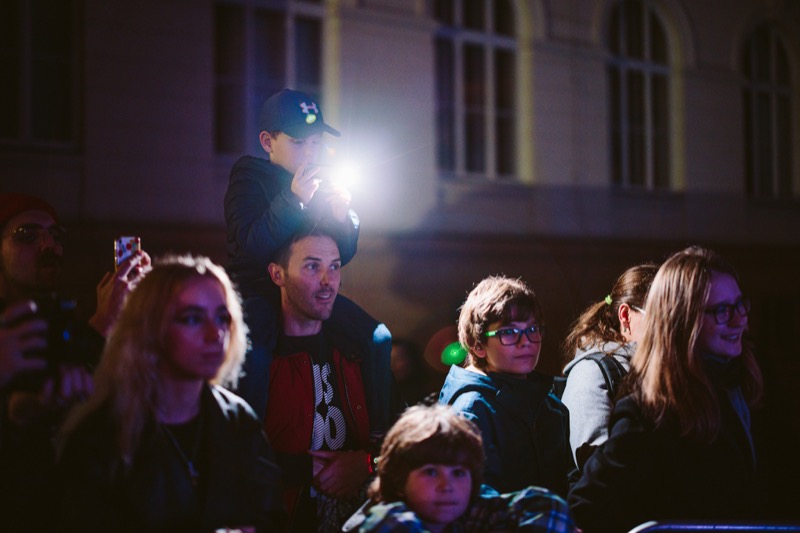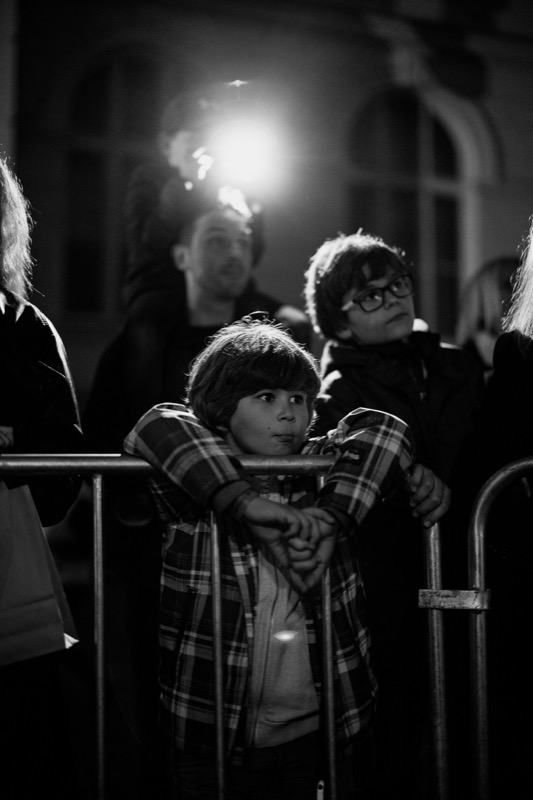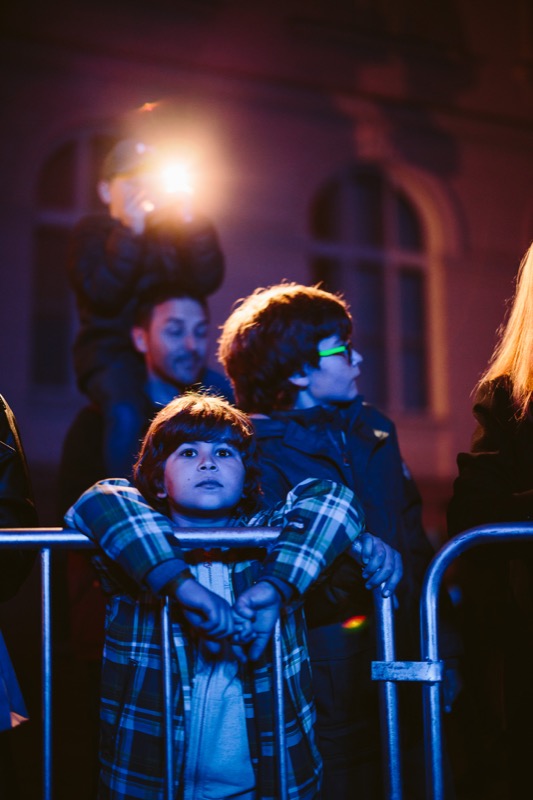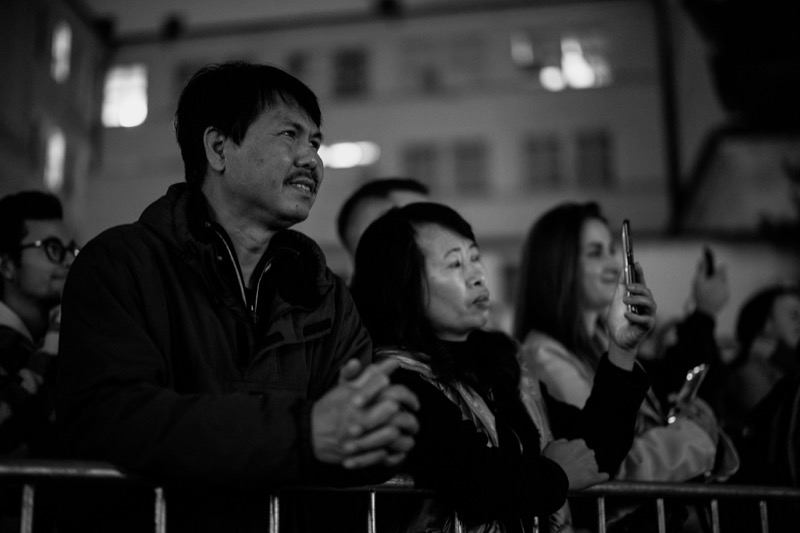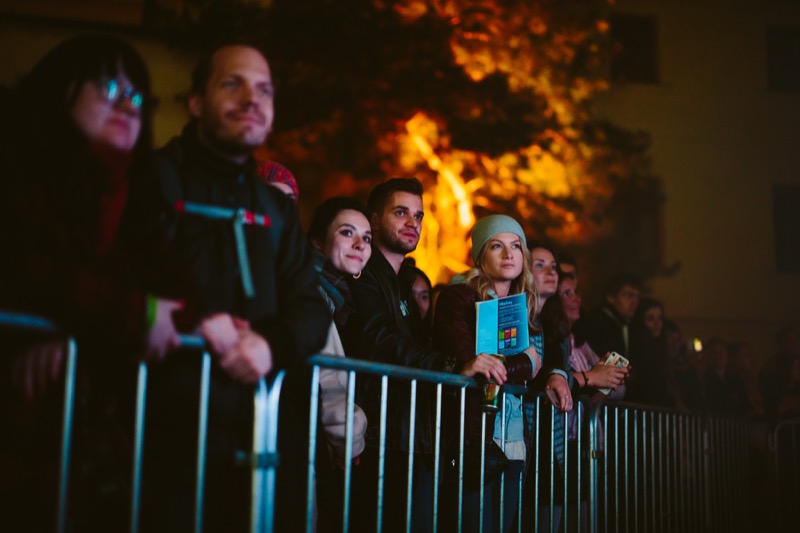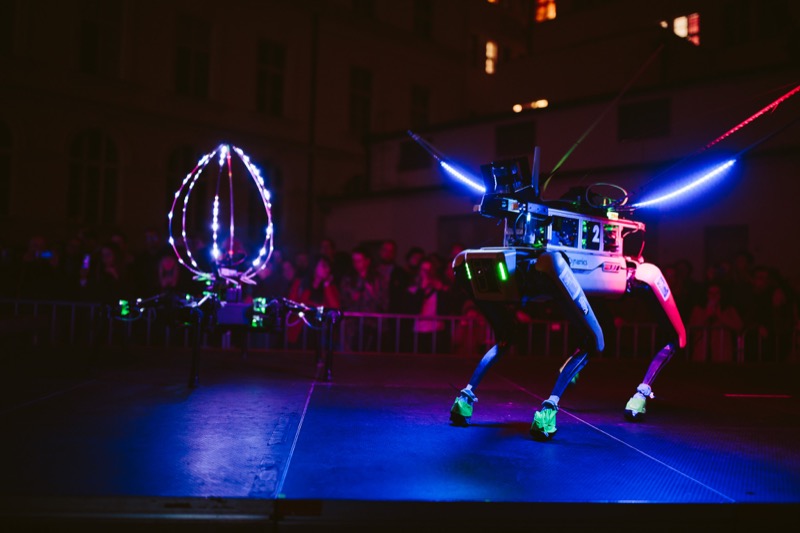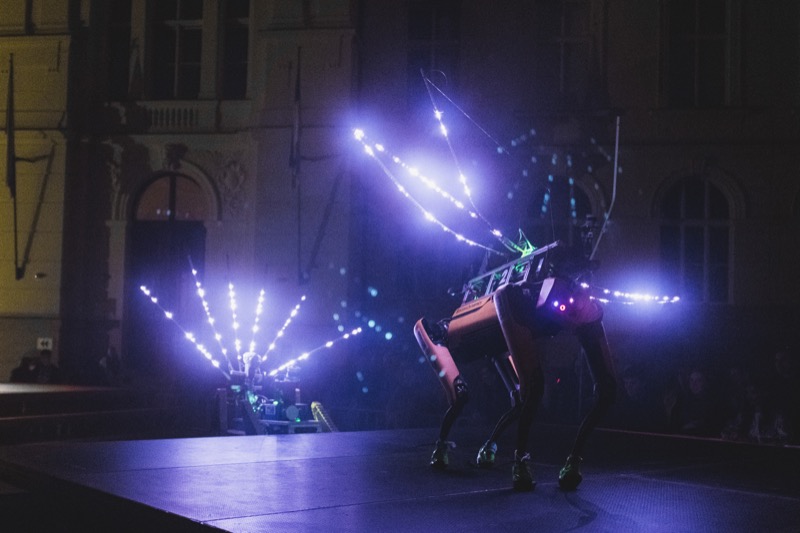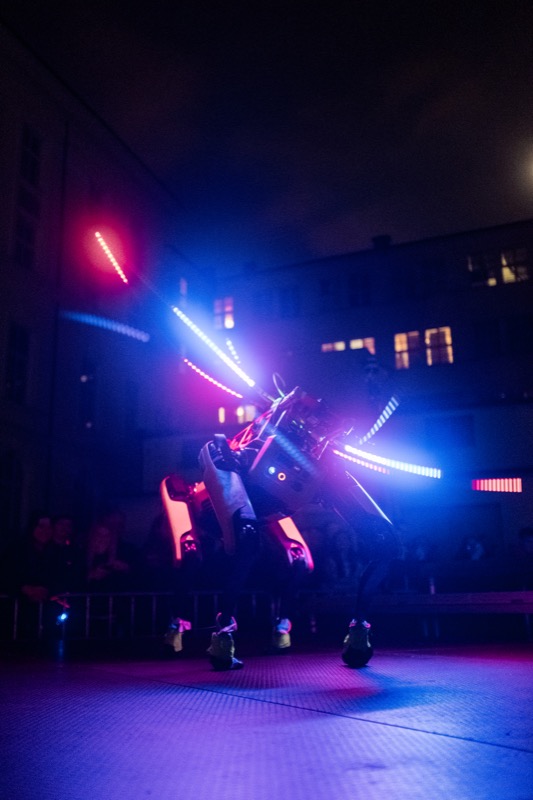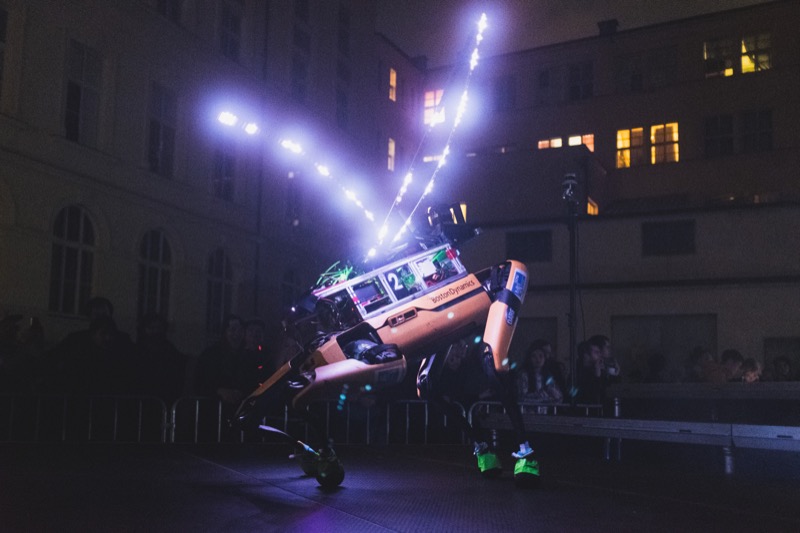The interactive installation Forum Robotum attracted 24,000 visitors to the Signal Festival at the FEE CTU
On October 13–16, the tenth Signal Festival took place on several locations in Prague. For the first time, the Faculty of Electrical Engineering of the Czech Technical University in Prague also participated with the Forum Robotum installation. During the four visiting days, it attracted an incredible 24,000 people of all ages, which makes the event one of the biggest popularization activities of the faculty in recent years. It is clear that the common future of humans and robots is a topic that moves society!
Robotic animal kingdom
What did the visitors experience? A team consisting of scientists, students and an external designer transformed the courtyard of the campus at Charles Square into a robotic zoo. Four types of research robots paraded around the elevated stage and showed what they were capable of. For the purposes of the installation, the LED exoskeletons were attached to the top of robots. By change of its color, the LED strips provided interaction with the visitors. The shape of these luminous organs resembled insect webs, flower buds, peacock tails or butterfly wings. And that is no coincidence! The anatomy and movement of some robots (e.g. a six-legged spider or a robotic dog) are derived from real animals, therefore even these elements found inspiration in nature.
"Unlike real creatures, however, robots are still just machines. They had problems adapting to changes in the surrounding environment," recalls the coordinator of the robotic pack, Bedřich Himmel. “Throughout the evening, fog kept appearing and the stage became mirror-like (at least for some sensors) and slippery. That's why we had to equip the four-legged robots with special sleeves made of anti-slip gloves and adjust the parameters of the control algorithms," explains Himmel, how they coped with the unexpected challenges on site.
The world through the eyes of robots
A depth map of the whole venue, which the robots constructed using lidars (laser distance meters), was projected on a large screen. In real time, visitors could watch how the machines see the world around them, including us.
This map also mediated the very interaction with the audience. Virtual cubes of different colors were marked on the map, and increased movement in their individual parts sent the corresponding color signal to the robots. People waved at the robots, lifted their children on their shoulders or danced according to the instructional animation on the screen. The transformation of the light elements on the robots always cheered up the crowd (especially when all the robots turned bright red at once). At the same time it was a live demonstration of how the response of robots to our presence could look like in the future.
Listen to the electromagnetic field
Most of us have probably seen a robot already, be it simple toys, industrial machines or experimental systems for research. But have you ever witnessed how a robot sounds? It's not quite common! And so we decided to convert the electromagnetic field of the robots into a sound track using a mic from guitar. We then harmonized this, so that the entire space was filled with magical music reminiscent of the soundtrack from sci-fi films. Additionally, we attached sensors directly to the SPOT robots, which emitted specific tones when they moved.
Talented PhD student Vojtěch Leischner from the Department of Computer Graphics and Interaction is the one behind this complex audio experience. Pleased with the success of the installation, he cannot seem to hide his enthusiasm: "The planning took a ton of emails and meetings, but it was more fun than I expected! I made new friends, discovered that even robots can slip and need semi-soaked gloves, and I tried to ride the curator's electric monocycle. If I had to make the decision again, I would definitely participate in Signal Festival!'
Student Inessa Davtyan, who formed an indispensable team of operators together with other students of the faculty, also rates her participation in the project as a definitely positive experience.
"It was very nice! Thanks to the caring organizers, we worked together well and I quickly learned to control the robot. I will never forget how the visitors cheered for Charlie the robot when it walked up the stairs," Inessa recalls of the happy moments at the festival.
Students controlled the robots remotely to ensure that the event runs safely and also to showcase the robots in their best light through their full range of motion. Believe us, SPOT dances like a pro and follows our commands obediently!
A complex organism of lights, robots, sensors and algorithms
The biggest challenge for the team was to integrate all the elements of the installation into one functioning unit. In addition to the robots themselves, Forum Robotum consisted of electromagnetic sensors, microcontrollers, several wireless modules, light control, lidars and a data analysis to mediate interaction between humans and robots.
"Today's technologies are truly complex. What appears to be a simple thing at first glance contains many different systems, buses and protocols behind the scenes. Their connection was key to our installation – at the same time, this exactly is the invisible and often demanding work of researchers," points out the curator of the installation, Jiří Zemánek from the Department of Control Engineering. But the hard work clearly paid off. "I really enjoyed the atmosphere of the installation, which some visitors described as being from another world," he adds.
The team of Forum Robotum
- Installation director: MgA. Vojtěch Leischner (Department of Computer Graphics and Interaction FEE CTU)
- Author of the concept: Ing. architect Petr Vacek
- Curators: Ing. Jiří Zemánek, Ph.D. (Department of Control Engineering FEE CTU), MgA. Daniel Burda (Signal Festival)
- Production and PR: Mgr. Karolína Poliaková (Department of Computer Science FEE CTU), Jiří Cmunt (Signal Festival)
- Robot coordinators: Ing. Tomáš Rouček (Department of Computer Science FEE CTU), Ing. Bedřich Himmel (Department of Cybernetics FEE CTU)

